
Rumonge: The Hidden Gem of Burundi
Located on the shores of Lake Tanganyika, Rumonge offers an enchanting mix of natural beauty and cultural richness. This serene town is a perfect destination for those looking to escape the hustle and bustle of city life and immerse themselves in a tranquil environment. The stunning lake, with its crystal-clear waters, is ideal for swimming, fishing, and boating. The surrounding hills and forests provide excellent opportunities for hiking and wildlife spotting. A visit to Rumonge is not complete without exploring its vibrant market. Here, you can find a variety of local products, from fresh produce to handmade crafts. The market is a great place to experience the daily life of the locals and to sample some traditional Burundian cuisine. Don't miss out on trying the freshly caught fish from Lake Tanganyika, which is a local delicacy. Rumonge is also home to several historical and cultural sites. The nearby Kigwena Forest Reserve is a must-visit for nature enthusiasts. This protected area is home to a diverse range of flora and fauna, including monkeys, birds, and rare plant species. The reserve offers guided tours, allowing visitors to learn more about the local ecosystem and conservation efforts. Additionally, Rumonge has several colonial-era buildings that provide a glimpse into the town's past. These sites, combined with the warm hospitality of the locals, make Rumonge a unique and memorable destination.
Local tips in Rumonge
- Visit the local market early in the morning to experience the freshest produce and vibrant atmosphere.
- Hire a local guide for a more informative and safe hike through the Kigwena Forest Reserve.
- Try the local fish dishes at one of the lakeside restaurants for an authentic taste of Rumonge.
- Bring cash, as ATMs are limited and credit card acceptance is rare in local shops and markets.
- Respect local customs and dress modestly, especially when visiting religious or cultural sites.
Rumonge: The Hidden Gem of Burundi
Located on the shores of Lake Tanganyika, Rumonge offers an enchanting mix of natural beauty and cultural richness. This serene town is a perfect destination for those looking to escape the hustle and bustle of city life and immerse themselves in a tranquil environment. The stunning lake, with its crystal-clear waters, is ideal for swimming, fishing, and boating. The surrounding hills and forests provide excellent opportunities for hiking and wildlife spotting. A visit to Rumonge is not complete without exploring its vibrant market. Here, you can find a variety of local products, from fresh produce to handmade crafts. The market is a great place to experience the daily life of the locals and to sample some traditional Burundian cuisine. Don't miss out on trying the freshly caught fish from Lake Tanganyika, which is a local delicacy. Rumonge is also home to several historical and cultural sites. The nearby Kigwena Forest Reserve is a must-visit for nature enthusiasts. This protected area is home to a diverse range of flora and fauna, including monkeys, birds, and rare plant species. The reserve offers guided tours, allowing visitors to learn more about the local ecosystem and conservation efforts. Additionally, Rumonge has several colonial-era buildings that provide a glimpse into the town's past. These sites, combined with the warm hospitality of the locals, make Rumonge a unique and memorable destination.
When is the best time to go to Rumonge?
Iconic landmarks you can’t miss
Hotel Club Du Lac Tanganyika
Discover luxury and tranquility at Hotel Club Du Lac Tanganyika, your serene getaway by the stunning shores of Lake Tanganyika.

Kiriri Garden Hotel
Discover comfort and wellness in Bujumbura at Kiriri Garden Hotel, featuring a fitness center and spa amidst serene gardens.
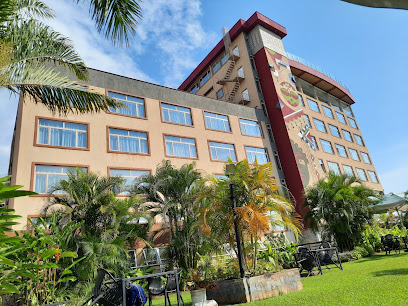
Roca Golf Hotel
Discover unparalleled luxury and stunning views at Roca Golf Hotel, the ideal retreat in Bujumbura for relaxation and adventure.

Tanganyika Bluebay Resort
Discover the idyllic tranquility of Tanganyika Bluebay Resort, a perfect getaway on the shores of Lake Tanganyika in beautiful Burundi.

Bujumbura Zoo
Explore Bujumbura Zoo, an exciting destination in Burundi filled with diverse wildlife and educational experiences for visitors of all ages.
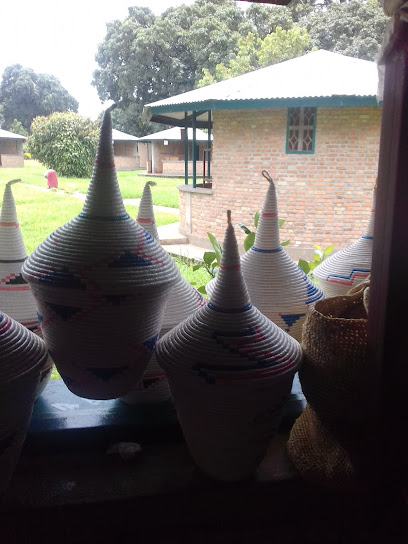
Marché central de Bujumbura Siyoni
Discover the essence of Burundian culture at Marché Central de Bujumbura Siyoni, a vibrant market filled with local goods and culinary delights.
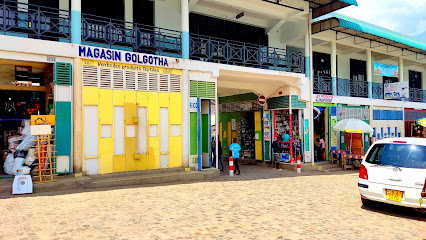
Martha Hotel
Discover comfort and local charm at Martha Hotel in Bujumbura, a perfect base for exploring the beauty and culture of Burundi.

Sunstone Beach
Experience tranquility and adventure at Sunstone Beach Resort, where pristine beaches meet luxurious accommodations in the heart of Rumonge, Burundi.
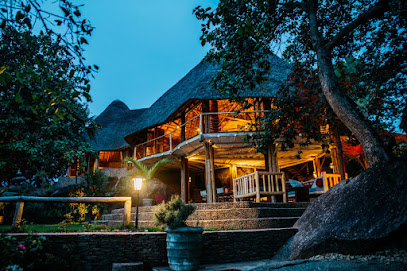
Garden Hotel
Discover the tranquil sanctuary of Garden Hotel in Bujumbura, where comfort meets the vibrant culture of Burundi's capital.

Livingston-Stanley Monument
Explore the Livingston-Stanley Monument in Ramba, a historic tribute to exploration amidst Burundi's breathtaking landscapes.
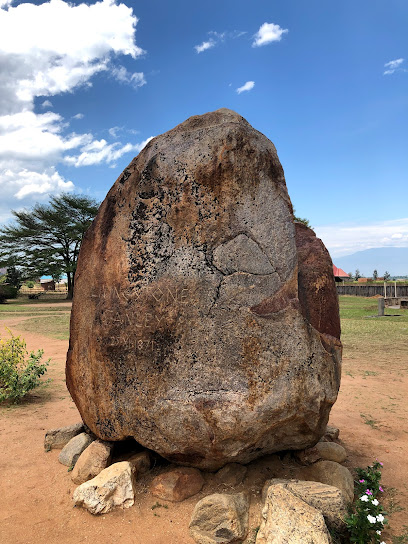
Gishora Drum Sanctuary
Experience the vibrant heritage of Burundi at Gishora Drum Sanctuary, where traditional rhythms echo the spirit of a nation.
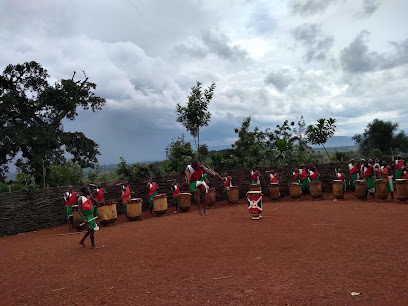
Hotel de la Palmeraie
Experience the comfort and charm of Hotel de la Palmeraie in Bujumbura, a perfect retreat for your Burundian adventure.
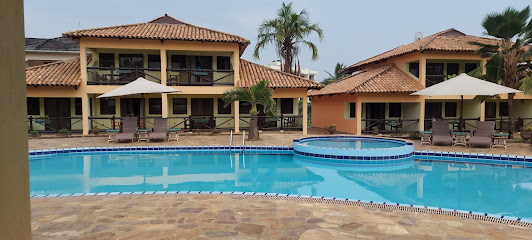
Burundi Tourism Transport
Discover the beauty and culture of Burundi with expert guidance from Burundi Tourism Transport, your trusted travel partner in Bujumbura.
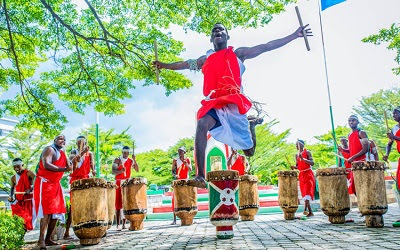
Kibira National Park
Experience the lush landscapes and rich biodiversity of Kibira National Park, a hidden gem of Burundi perfect for adventure seekers and nature lovers.
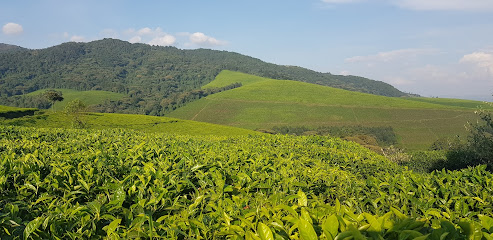
Aparthotel Jardin Tropical Bujumbura
Discover serenity and comfort at Aparthotel Jardin Tropical, your perfect retreat in the heart of Bujumbura, Burundi.
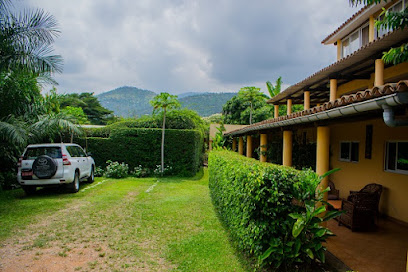
Unmissable attractions to see
Traité de Kiganda
Explore the cosmos at Traité de Kiganda, a captivating museum celebrating the history of space exploration in Kiganda, Burundi.
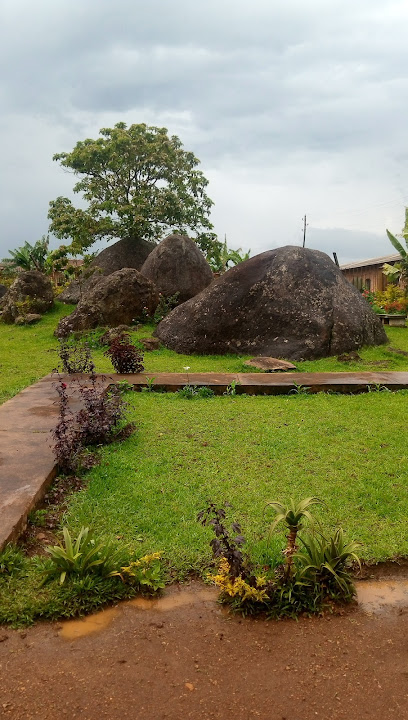
Südlichste Nilquelle/Burkhard-Waldecker-Pyramide
Explore the breathtaking Burkhard-Waldecker Pyramid, the southern source of the Nile, and immerse yourself in nature's beauty in Musenyi, Burundi.
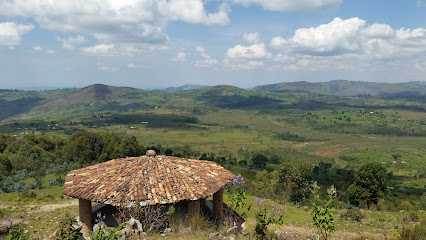
RCD ASSOCIATION
Explore RCD Association, a serene memorial park in Bujumbura, where nature and history come together in peaceful remembrance.
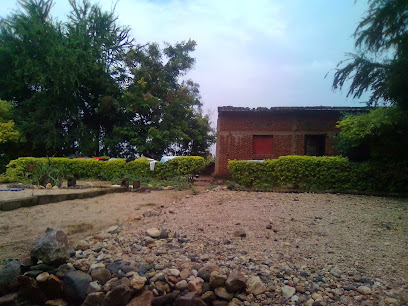
Bureau INCN (OBPE) Bururi
Experience the vibrant culture and rich history at Bureau INCN (OBPE) Bururi, a must-visit tourist attraction in Burundi.

Kigwena Forest Nature Reserve
Explore the serene beauty of Kigwena Forest Nature Reserve, a hidden gem in Burundi, perfect for nature lovers and outdoor adventurers seeking tranquility.

Kibima
Explore the natural beauty and rich culture of Kibima, a serene tourist attraction in Kiremera, Burundi, perfect for all types of travelers.

Mubanga
Explore the stunning trails and lush landscapes of Mubanga, a must-visit hiking area in Rurambira, perfect for nature lovers and adventure seekers.

Pont sur la Ruvubu
Explore the breathtaking Pont sur la Ruvubu in Kiryama, a serene bridge offering stunning views and a unique glimpse into Burundi's natural beauty.
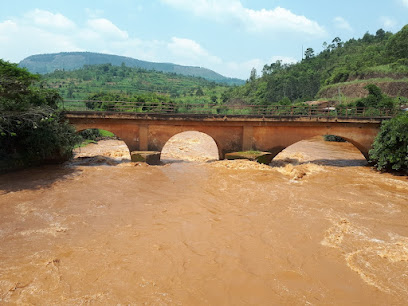
Rubindi
Discover Rubindi Garden, a serene escape in Burundi with vibrant flora, tranquil pathways, and a celebration of natural beauty. A must-visit!

La luna
Discover La Luna Garden in Bujumbura: A serene oasis with vibrant flora, tranquil pathways, and a peaceful escape from the city's hustle.

Essential places to dine
Le Café Gourmand
Experience the best of Bujumbura at Le Café Gourmand—where exquisite bakery delights meet cozy café vibes.
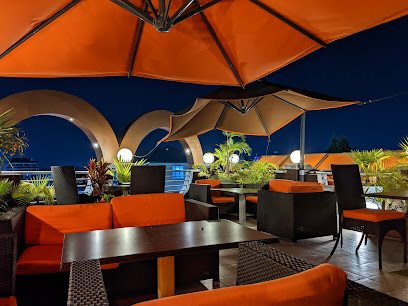
Arena Restaurant Lounge Bar
Discover the vibrant culinary scene at Arena Restaurant Lounge Bar in Bujumbura - where local flavors meet international cuisine in an inviting atmosphere.
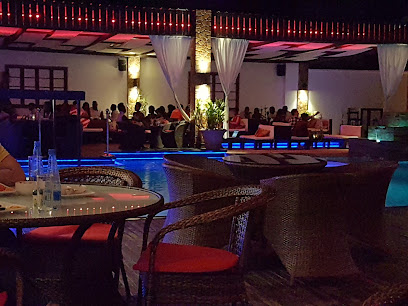
Waka Waka
Experience authentic Italian cuisine at Waka Waka in Bujumbura - where vibrant flavors meet warm hospitality.
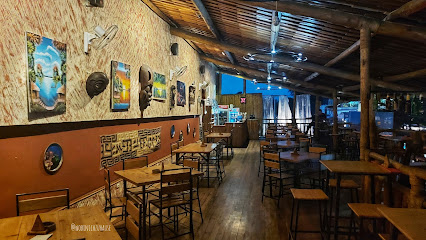
Zanzi
Experience the vibrant flavors of Burundi at Zanzi Restaurant in Bujumbura - where local meets global in every bite.
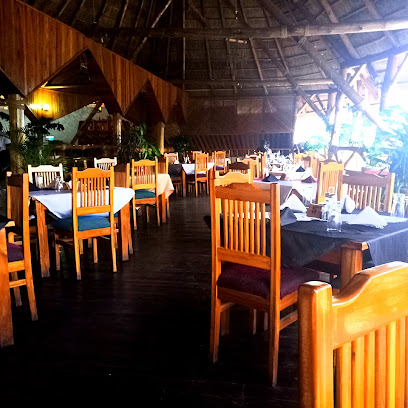
Harrys Grill House
Discover Bujumbura’s culinary gem at Harry's Grill House - where every meal is a flavorful adventure!
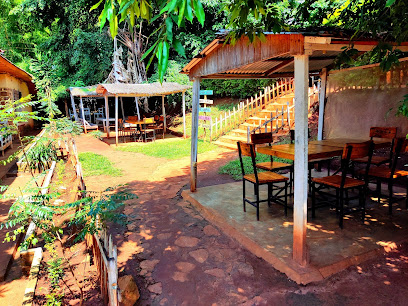
Maquis
Discover authentic Burundian cuisine at Maquis in Bujumbura – where flavor meets culture in a vibrant setting.
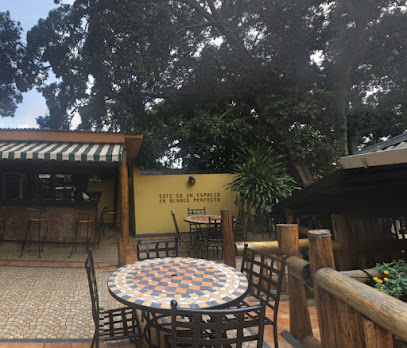
Pasta comedia
Experience authentic Italian flavors at Pasta Comedia in Bujumbura, where every dish tells a delicious story.
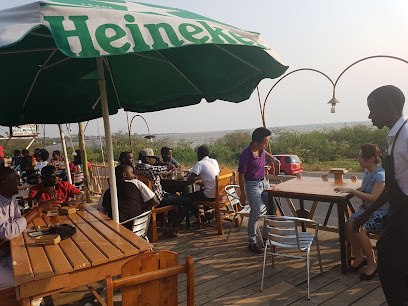
Belvedere Restaurant
Savor the authentic taste of Burundi at Belvedere Restaurant, where exquisite dishes meet stunning decor in Bujumbura.
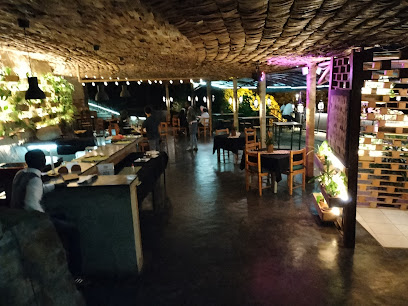
Taj Mahal grana parmisiano
Discover authentic Indian cuisine at Taj Mahal Grana Parmisiano in Bujumbura – where every meal is a celebration of flavor and culture.
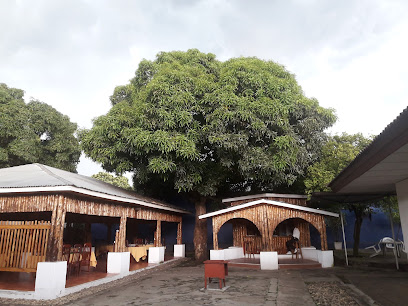
Restaurant Chez Orphée
Experience the unique flavors of Burundi at Restaurant Chez Orphée in Bujumbura – where local ingredients meet international cuisine.
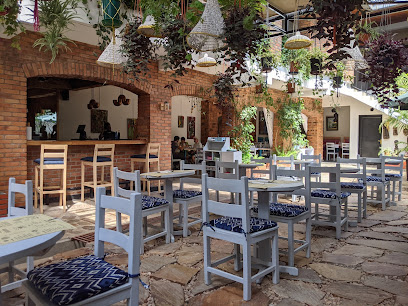
Flamboyant Gardens
Discover Flamboyant Gardens in Bujumbura - where culinary delights meet nature's beauty in a vibrant restaurant and bar setting.
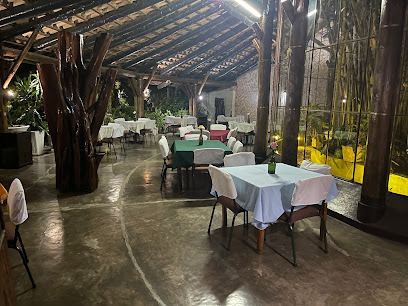
Restaurant Bar Meteo
Discover authentic Burundian flavors in a serene setting at Restaurant Bar Meteo, Bujumbura's premier dining destination.
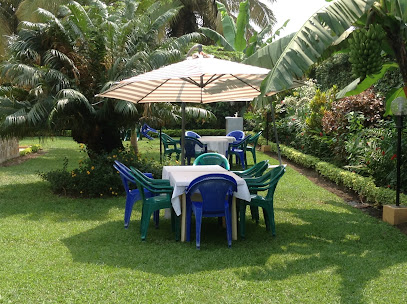
LM Kafe
Experience exquisite dining at LM Kafe in Bujumbura - where local flavors meet international cuisine.
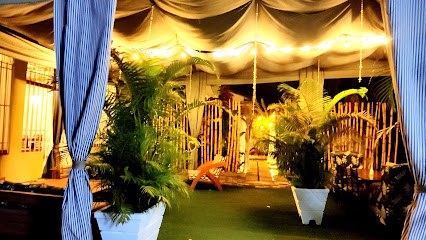
Restaurant Oasis
Experience authentic Burundian cuisine in a cozy atmosphere at Restaurant Oasis in Bujumbura.
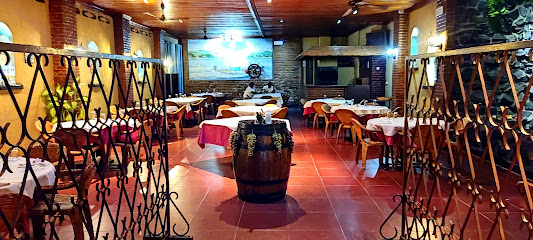
Restaurant Tanganyika
Experience exquisite Burundian cuisine with stunning views at Restaurant Tanganyika on Lake Tanganyika.
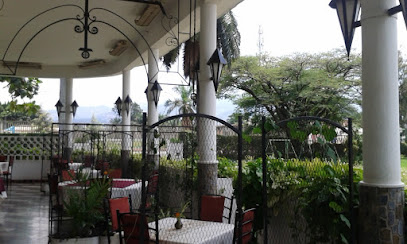
Markets, malls and hidden boutiques
Marché de RUMONGE
Discover the vibrant culture and unique shopping experience at Marché de Rumonge in Burundi, where local crafts and delicious street food await.
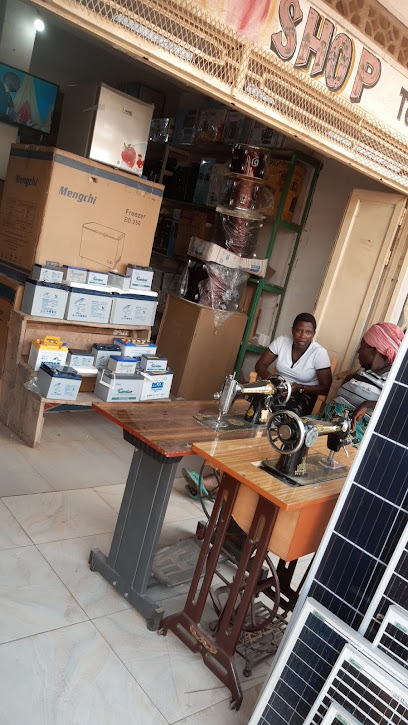
Gitaza Market
Explore Gitaza Market: A vibrant hub for handcrafted home goods, local textiles, and unique decor reflecting the rich culture of the region.
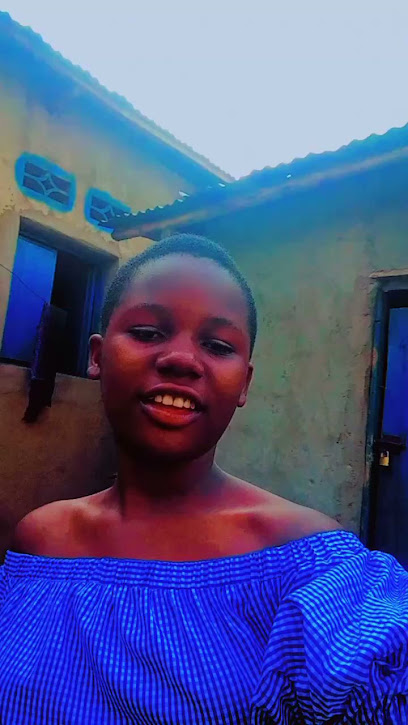
Magasin Kubiyo
Explore the vibrant world of hardware supplies at Magasin Kubiyo, your go-to store for all DIY and home improvement needs.

Rukaramu
Explore Rukaramu, the ultimate gift shop for unique souvenirs and local crafts that embody the spirit of your travels.
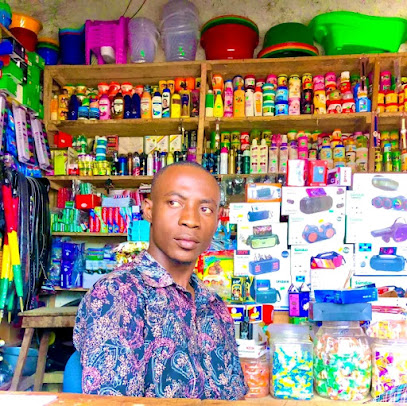
Kwa Desire
Explore the charm of Kwa Desire, a delightful gift shop in Kinyinya offering unique local crafts and artisan treasures that capture the essence of Burundi.

Boom
Explore Boom in Bujumbura for unique gifts that celebrate Burundian culture, handcrafted by local artisans, perfect for every traveler.

Burundi Makamba ,kayogoro , marché
Explore the vibrant Burundi Makamba Market in Kayogoro, where local flavors and community spirit come alive in a unique shopping experience.

Food Shop
Explore the vibrant flavors of Bujumbura at this grocery store, your gateway to local produce and authentic Burundian snacks.
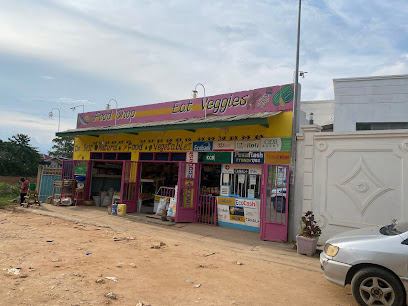
Bujumbura store
Explore the vibrant beauty culture of Bujumbura at the Cosmetics Store, where local tradition meets modern beauty trends.
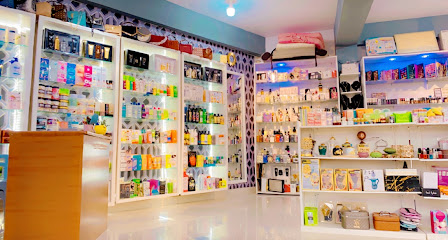
NAC Coffee and Mart
Explore NAC Coffee and Mart in Bujumbura—your one-stop destination for local flavors and international brands in a friendly supermarket atmosphere.
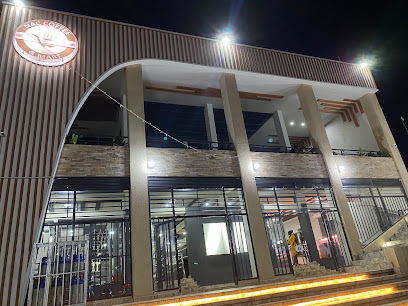
Centre Humura
Centre Humura: A vibrant shopping mall in Matana offering local culture, unique shopping, and delightful dining experiences.

Good clove Office
Experience hassle-free mobile phone repairs at Good Clove Office in Rumonge, keeping you connected during your travels.

Rumonge
Experience the vibrant automotive culture and charming local life in Rumonge, Burundi's hidden gem for car enthusiasts and travelers.

Chez Musauza
Discover unique automotive supplies and local expertise at Chez Musauza in Rumonge, Burundi, a must-visit for car enthusiasts.

BRk Atelier Menuiserie
Explore the exquisite craftsmanship and innovative designs at BRk Atelier Menuiserie, Rumonge's premier destination for unique furniture pieces.

Essential bars & hidden hideouts
Bar Le Royal
Experience the vibrant flavors of Kabezi at Bar Le Royal, a grill offering a delightful blend of local dishes and warm hospitality.
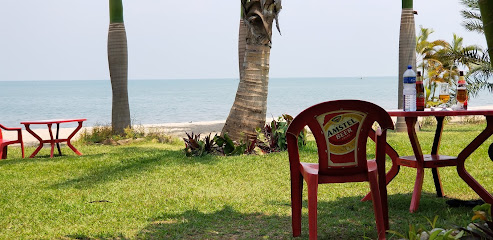
Majestic Restaurant
Experience the best of Burundian cuisine at Majestic Restaurant, where every meal is a celebration of local flavors and hospitality.
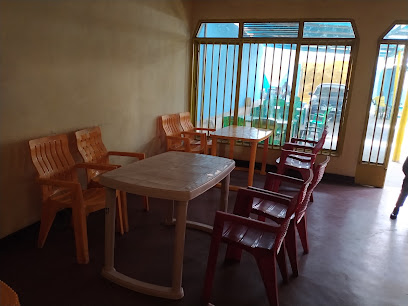
Bar le manguier
Discover the vibrant nightlife of Bujumbura at Bar le Manguier, where refreshing drinks and a friendly atmosphere await you.
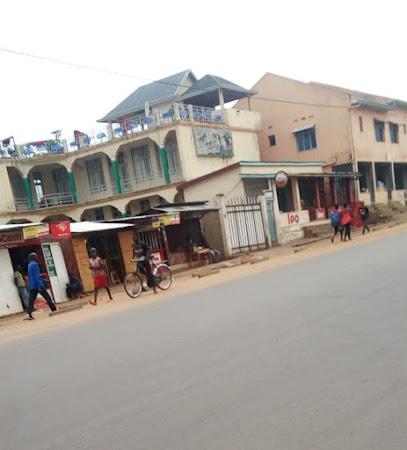
Bar chez butunu
Discover the authentic atmosphere of Bar Chez Butunu in Bujumbura, where local flavors and a vibrant ambiance come together for an unforgettable experience.

BEST GARDEN RESTO-BAR
Discover the Best Garden Resto-Bar in Bujumbura – a serene escape with delightful cuisine and vibrant gardens.

Tourist Town Beach
Experience the vibrant charm of Tourist Town Beach, where relaxation meets local culture amidst stunning coastal views.
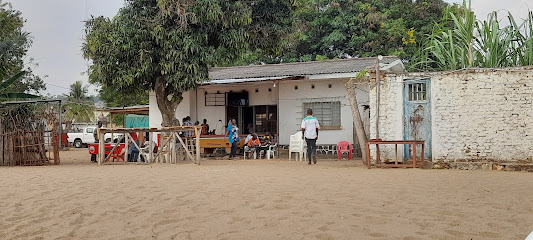
Kikwetu
Experience the flavors of Burundi at Kikwetu, a delightful restaurant in Rumonge offering fresh, local cuisine and warm hospitality.
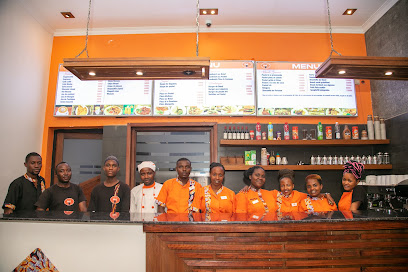
RURINGANIZO
Discover the vibrant atmosphere and local flavors at RURINGANIZO, Bujumbura's hidden bar gem where culture and relaxation meet.

MOG BURURI
Experience the vibrant atmosphere of MOG BURURI, a charming bar in Bururi offering a delightful selection of local and international drinks.

Rumonge
Discover the lively atmosphere of Rumonge, Kiremera's favorite bar, where local culture meets refreshing drinks and unforgettable experiences.

Best Next Bar
Experience the lively nightlife at Best Next Bar in Bwoga, where local flavors meet vibrant social scenes for an unforgettable evening.

Bar gitagari city
Discover the lively Gitagari Bar in Rumonyi, where local culture meets vibrant nightlife for the perfect evening out.

Burundi Rumonge Magara
Discover the authentic tastes of Burundi at Rumonge Magara, a cozy restaurant offering traditional dishes in a warm atmosphere.
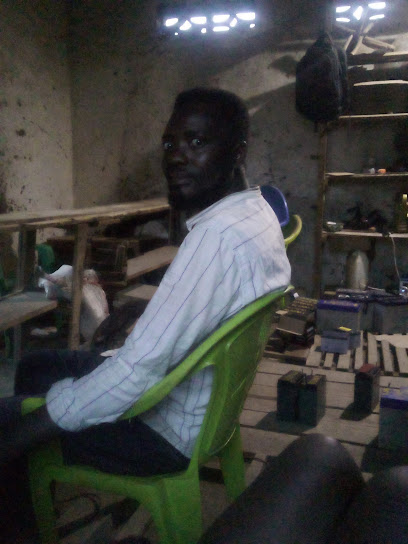
Nyamanogo city chez MJC
Discover the lively nightlife of Mirango at Nyamanogo City chez MJC, where local culture meets vibrant atmosphere and delicious drinks.

Local Phrases
-
- HelloAmakuru
[ah-mah-koo-roo] - GoodbyeKwaheri
[kwa-heh-ree] - YesEgo
[eh-go] - NoOya
[oh-yah] - Please/You're welcomeNyumva
[nyoom-vah] - Thank youUrakoze
[oo-rah-koh-zeh] - Excuse me/SorryNdasaba
[ndah-sah-bah] - How are you?Amakuru?
[ah-mah-koo-roo] - Fine. And you?Ni meza. Nawe?
[nee meh-zah. nah-weh] - Do you speak English?Uragira ikinyarwanda?
[oo-rah-ghee-rah ee-keen-yah-roo-ahn-dah] - I don't understandNtazi
[en-tah-zee]
- HelloAmakuru
-
- I'd like to see the menu, pleaseNifise menu, kubanjye
[nee-fee-seh meh-noo, koo-bahn-jyeh] - I don't eat meatSindaza gukora inyama
[seen-dah-zah goo-koh-rah ee-nyah-mah] - Cheers!Amahoro!
[ah-mah-hoh-roh] - I would like to pay, pleaseNifuza kugura, kubanjye
[nee-foo-zah koo-goo-rah, koo-bahn-jyeh]
- I'd like to see the menu, pleaseNifise menu, kubanjye
-
- Help!Ubwira!
[oo-bee-rah] - Go away!Hanze!
[hahn-zeh] - Call the Police!Nimwigisha Polisi!
[neem-wee-ghee-shah poh-lee-see] - Call a doctor!Nimwigisha umurimo!
[neem-wee-ghee-shah oo-moo-ree-moh] - I'm lostNdiyanditse
[en-dee-yahn-deet-seh] - I'm illNdiyaguhungabanye
[en-dee-yah-goo-hoon-gah-bahn-yeh]
- Help!Ubwira!
-
- I'd like to buy...Nifise...
[nee-fee-seh] - I'm just lookingNakurikiriza
[nah-koo-ree-kee-ree-zah] - How much is it?Ni amaherahe?
[nee ah-mah-heh-rah-heh] - That's too expensiveIyo ni hafi
[ee-yoh nee hah-fee] - Can you lower the price?Ukeneye kugenzura ibyoherereza?
[oo-keh-neh-yeh koo-geh-nzoo-rah ee-byo-heh-reh-zah]
- I'd like to buy...Nifise...
-
- What time is it?Saa ngapi?
[sah-ah ngah-pee] - It's one o'clockSaa y'umwe
[sah-ah yoom-weh] - Half past (10)Iminota itandatu na mirongo itanu
[ee-mee-noh-tah ee-tahn-dah-too nah mee-rohn-goh ee-tah-noo] - MorningUmugoroba
[oo-moo-goh-roh-bah] - AfternoonKure
[koo-reh] - EveningIgihe cya saha
[ee-gee-heh chah sah-hah] - YesterdayEjo
[eh-joh] - TodayEjo
[eh-joh] - TomorrowEjo
[eh-joh] - 1Rimwe
[ree-mweh] - 2Kabiri
[kah-bee-ree] - 3Gatatu
[gah-tah-too] - 4Kane
[kah-neh] - 5Gatanu
[gah-tah-noo] - 6Gatandatu
[gah-tahn-dah-too] - 7Kumwe
[koom-weh] - 8Umunani
[oo-moo-nah-nee] - 9Icyenda
[ee-chyen-dah] - 10Icumi
[ee-choo-mee]
- What time is it?Saa ngapi?
-
- Where's a/the...?Iyihe...?
[ee-yee-heh] - What's the address?Aho adiresi?
[ah-hoh ah-dee-reh-see] - Can you show me (on the map)?Waba wowe ukeneye kundeba (kuri iki cyumba)?
[wah-bah woh-weh oo-keh-neh-yeh koon-deh-bah (koo-ree ee-kee chyoom-bah)] - When's the next (bus)?Niyihe isaha igihe cyiza?
[nee-yee-heh ee-sah-hah ee-ghee-heh chee-zah] - A ticket (to ....)Isaha (kuri ....)
[ee-sah-hah (koo-ree ....)]
- Where's a/the...?Iyihe...?
History of Rumonge
-
Rumonge, nestled along the shores of Lake Tanganyika, has been a site of human settlement for centuries. The region was originally inhabited by the Twa people, one of the oldest ethnic groups in Burundi. Over time, Hutu and Tutsi groups also settled in the area, contributing to the rich cultural tapestry of Rumonge. The town's strategic location along Lake Tanganyika made it an important hub for fishing and agriculture long before European colonial powers arrived.
-
During the late 19th and early 20th centuries, Rumonge became a focal point in the colonial ambitions of Germany and later Belgium. Under German control from 1890 to 1916, the town saw the establishment of trading posts and infrastructure that facilitated the export of local goods such as coffee and cotton. After World War I, Belgium took over the administration of Burundi, including Rumonge, further solidifying its role as a trading hub. The Belgians introduced new agricultural techniques and crops, which significantly impacted the local economy and lifestyle.
-
Burundi gained independence from Belgium on July 1, 1962, marking a new chapter in Rumonge's history. The town became part of a newly sovereign nation, experiencing both the challenges and opportunities of self-governance. Throughout the 1960s and 1970s, Rumonge continued to grow, bolstered by its fertile lands and access to Lake Tanganyika. However, political instability and ethnic tensions occasionally disrupted its development. Despite these challenges, Rumonge remained an essential player in Burundi's economic landscape.
-
The Burundian Civil War (1993-2005) had profound effects on Rumonge, as it did on the rest of the country. The conflict, primarily between Hutu and Tutsi ethnic groups, led to widespread violence and displacement. Rumonge, like many other parts of Burundi, saw its infrastructure and economy severely affected. The town's residents faced numerous hardships, including food shortages and loss of life. However, the end of the civil war brought a period of reconciliation and rebuilding, with efforts to restore peace and stability in the region.
-
Today, Rumonge is a vibrant town that reflects the resilience and cultural richness of its people. It is known for its bustling markets, where traders sell everything from fresh fish and produce to handcrafted goods. The town's proximity to Lake Tanganyika continues to shape its identity, with fishing remaining a crucial part of the local economy. Cultural festivals and traditional music and dance performances are common, celebrating the diverse heritage of Rumonge's inhabitants. The town is also a growing tourist destination, attracting visitors with its natural beauty and historical significance.
Rumonge Essentials
-
Rumonge is located in the southwestern part of Burundi, on the shores of Lake Tanganyika. The nearest international airport is Bujumbura International Airport, approximately 75 kilometers away. From Bujumbura, you can take a bus or hire a private taxi to Rumonge. The journey typically takes around 2 hours by road. There are also minibuses (matatus) that operate between Bujumbura and Rumonge, offering a more budget-friendly option.
-
Within Rumonge, you can get around by using local taxis, mototaxis (motorcycle taxis), or the minibuses that serve different routes in and around the town. Walking is also an option for exploring the central areas, as many attractions are within walking distance. For trips outside of town, renting a car or hiring a private driver can provide more flexibility.
-
The official currency in Burundi is the Burundian Franc (BIF). Credit cards are not widely accepted in Rumonge, so it is advisable to carry cash for most transactions. ATMs are available but may be limited, so it is wise to withdraw enough cash in Bujumbura before traveling to Rumonge. Local markets and smaller establishments generally only accept cash.
-
Rumonge is generally safe for tourists, but it is important to take standard precautions. Avoid walking alone at night and be cautious in crowded places to protect your belongings. While there are no specific high-crime areas targeting tourists, it is always best to stay vigilant and aware of your surroundings. Areas near the lake can get busy, so keep an eye on your personal items.
-
In case of emergency, dial 112 for immediate assistance. Rumonge has a local police station and medical facilities available for emergencies. It is recommended to have travel insurance that covers medical emergencies. For minor health issues, there are pharmacies in the town where you can purchase over-the-counter medications.
-
Fashion: Do dress modestly, especially when visiting religious sites or rural areas. Avoid wearing revealing clothing. Religion: Do respect local customs and traditions. It is polite to ask before taking photos of religious sites or ceremonies. Public Transport: Do be respectful and patient when using public transport. Don't eat or drink on public transport. Greetings: Do greet people with a handshake or a nod. Using a few words in the local language, Kirundi, can be appreciated. Eating & Drinking: Do try local dishes and accept food offerings graciously. Don't refuse hospitality, as it is considered impolite.
-
To experience Rumonge like a local, visit the bustling local markets where you can buy fresh produce, fish, and traditional Burundian crafts. Engage with locals, as they are often friendly and willing to share stories about the area's culture and history. Don't miss the opportunity to enjoy a boat ride on Lake Tanganyika, which offers stunning views and a chance to see local fishing practices. Trying the local fish dishes, such as 'Mukeke' and 'Sangala', is highly recommended.
Trending Landmark in Rumonge
-
Hotel Club Du Lac Tanganyika
-
Kiriri Garden Hotel
-
Roca Golf Hotel
-
Tanganyika Bluebay Resort
-
Bujumbura Zoo
-
Marché central de Bujumbura Siyoni
-
Martha Hotel
-
Sunstone Beach
-
Garden Hotel
-
Livingston-Stanley Monument
-
Gishora Drum Sanctuary
-
Hotel de la Palmeraie
-
Burundi Tourism Transport
-
Kibira National Park
-
Aparthotel Jardin Tropical Bujumbura
Nearby Cities to Rumonge
-
Things To Do in Bururi
-
Things To Do in Bujumbura
-
Things To Do in Muramvya
-
Things To Do in Gitega
-
Things To Do in Kigoma
-
Things To Do in Kayanza
-
Things To Do in Cibitoke
-
Things To Do in Ngozi
-
Things To Do in Butare
-
Things To Do in Muyinga
-
Things To Do in Kirundo
-
Things To Do in Karongi
-
Things To Do in Nyamata
-
Things To Do in Kibuye
-
Things To Do in Muhanga





